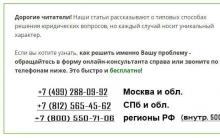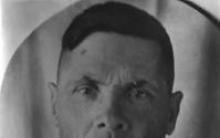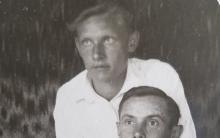- a prestigious theatrical educational institution, which recently celebrated its 70th anniversary. During this time, several thousand first-class specialists have emerged from its walls - talented actors, directors, producers. What are such names as Leonid Bronevoi, Alexei Batalov, Galina Volchek, Oleg Tabakov, Tatyana Doronina, Nikolai Karachentsov, Evgeny Mironov ...
was created on the initiative of V.I. Nemirovich-Danchenko and still bears his name. Education here is carried out in four specialties: acting, scenography, technology of artistic design of the performance and production. Graduates MKhAT studio schools work in the best theaters in Russia.
For those who cannot imagine their life without theater and dream of devoting themselves to the stage, admission to Moscow Art Theater School can become the very starting point from which a person's life in art begins.
Of course, the number of applicants is many times higher than the target figures for admission to all faculties. Only the most talented and worthy guys from among those who not only want to be an actor, but are eager to develop and improve themselves, comprehend the secrets of art, hone their skills and abilities, get into the number of students.
To get into Moscow Art Theater School, it's not enough just to come to the audition and read your program. Entrance examinations should be preceded by a long preparation and work on oneself. The applicant must be relaxed, expressive, erudite, must know the basic acting terminology, be familiar with the history of the theater, have an idea about books that tell about the profession of an actor. Anyone who is going to enter the acting department must be able to control his voice and body well, be flexible, strong and plastic, have good coordination of movements, have clear diction, and correct pronunciation. The applicant's voice must be well-set, deep and pleasant, and most importantly, it must express emotions.
All of the above requirements are not overstated or unattainable. Compliance with them can be achieved by devoting a sufficient amount of time and effort to working on yourself. If you can get acquainted with the work of great actors and directors on your own, then for everything else you will need a teacher who will supervise your classes.
Now there are many theater studios preparing children for. Each of the studios has its own leader, and, accordingly, its own teaching staff and methods of work. The theater studio has a great advantage over classes with a private teacher. Group classes contribute to emancipation, develop a sense of partnership. In addition, in the theater studios, classes are held in several disciplines at once, which allows the guys to work in several directions at once.
Theater Studio Square- a place with more than forty years of history. This acting school aims at pre-professional training of boys and girls for acting. This is where the kids learn acting skills, stage speech, stage movement and choreography, develop comprehensively, take their first steps on the stage, participate in the production of performances of all genres - from New Year's fairy tales to Shakespeare's tragedies. Having been trained in studio theater Square, the most motivated students easily enter theater universities, including the Moscow Art Theater School.
language There is no data
schedule Working mode:
Mon., Tue., Wed., Thu., Fri. from 11:00 to 16:00
Gallery


general information
Federal State Budgetary Educational Institution of Higher Education “Studio School (Institute) named after Vl.I. Nemirovich-Danchenko at the Moscow Art Academic Theater named after A.P. Chekhov"
License
No. 01984 is valid Indefinitely from 03/04/2016
Accreditation
There is no data
Monitoring results of the Ministry of Education and Science for the Moscow Art Theater School
| Indicator | 18 year | 17 year | 16 year | 15 year | 14 year |
| Performance indicator (out of 6 points) | 4 | 4 | 6 | 5 | 6 |
| Average USE score in all specialties and forms of education | 72.27 | 70.53 | 70.62 | 67.74 | 66.66 |
| Average USE score credited to the budget | 74.91 | 71.52 | 70.92 | 69.74 | 67.4 |
| Average USE score enrolled on a commercial basis | 67.48 | 69.21 | 69.98 | 63.83 | 63.45 |
| The average for all specialties is the minimum USE score enrolled in the full-time department | 57 | 53.5 | 55.12 | 54.50 | 59.67 |
| Number of students | 247 | 249 | 285 | 314 | 311 |
| full-time department | 247 | 249 | 261 | 267 | 266 |
| Part-time department | 0 | 0 | 0 | 0 | 0 |
| Extramural | 0 | 0 | 24 | 47 | 45 |
| All data | Report | Report | Report | Report | Report |
About the Moscow Art Theater School
The history of the creation of the School - studio
In 1943, a new acting institution of higher education was opened - the School-Studio named after Vl. I. Nemirovich-Danchenko. The Institute was founded on the basis of the Moscow Art Academic Theater named after A.P. Chekhov. The first intake of students took place during the Great Patriotic War, but this did not prevent the first course from being completed in full. The basis of teaching at the university was the world-famous Stanislavsky system. Famous graduates of the theater institute of past years are such domestic stars as Oleg Efremov, Alexei Batalov, Lilia Tolmacheva. Graduated from the School-Studio named after Vl. I. Nemirovich-Danchenko and cult modern stars: Irina Apeksimova, Vladimir Mashkov.
Directions of educational activity Schools - studios
The institute implements training programs in the following areas:
- Acting art. At the end of the course, a diploma of a specialist is awarded, the term of full-time study is 4 years. It is possible to receive both on a paid and on a budgetary basis;
- Artistic design of the performance. Students of this direction receive a bachelor's degree;
- Scenography. Graduates who have completed a 5-year course of study are issued a specialist diploma;
- Producing (qualification - performing arts producer). This direction implies a 5-year training for a specialist.
A set of general humanitarian and special disciplines is provided for each faculty, including history, philosophy, foreign languages, acting, stage speech and plasticity, drawing and painting, make-up.
student life
Students of the Studio School, based on the results of intermediate tests, can count on receiving a regular or increased scholarship, subject to their excellent passing. In addition, monthly material support is assigned to certain categories of students. Students of the acting faculty are provided with a place in the hostel.
Student life is spent on tour. Young actors and actresses got the opportunity to perform on the best stages of the country, spend most of their time in the spotlight.
Main directions of international activity
School-studio named after Vl. I. Nemirovich-Danchenko also has significant international activities carried out in the following areas:
- Teaching foreign students on special programs;
- Cooperation with foreign universities;
- Organization of internships for students of the institute.
Over the years, hundreds of students from near and far abroad have come to study at the legendary institution of higher education. Foreign students study intensively together with Russian students, and also get the opportunity for complete language immersion. More than 10 years ago, on the basis of the School-Studio, a master's program was opened, in which education is conducted for all students, regardless of nationality. The master's program has a partnership program with the theater department of Harvard University. The institute has fruitful friendly relations with the National Theater Institute (Connecticut), Northern Illinois College, the Central School of Speech and Drama (USA), the Academy of International Art (Bonn, Germany).
Since 1990, the Stanislavsky Summer School, which is quite well-known abroad, has been opened on the basis of Cambridge. Its students study Russian culture, art and theater.
Information for applicants
Admission to the Studio School is based on the results of a unified state exam in Russian language and literature, as well as on the basis of a creative interview. Each direction has its own requirements for entrance examinations. So, for admission to the faculty of acting, it is required to recite an excerpt from a poem, fable or prose work. The direction of scenography involves the creation of a drawing or graphic composition. All additional tests are evaluated on a 100 point scale.
Additional facts about education at the School - Studio
Students of a creative university have the opportunity to continue their higher education by enrolling in a master's program. This direction is available for directing direction.
An important part of the educational process is the participation of students in staging performances on the stage of the educational theater. It is in this place that graduation speeches of future specialists in the creative field take place. Stage productions of this nature are organized not only with the participation of the teaching staff, but also with a full hall of real spectators. Internships for students of the School-Studio. Vl. I. Nemirovich-Danchenko are held in the form of tours. Students of the institute can try their hand not only in classical performances, but also in modern productions in the Art Nouveau style.
The standard period of study is 4 years.The form of education is full-time.
Admission targets (budget places): main places - 14, admission quota for persons with special rights - 2.
Under contracts with payment of tuition fees (paid places) - 16.
Artistic director of the course – Ryzhakov Viktor Anatolyevich, professor, Honored Art Worker of the Russian Federation.
Prior to the start of the entrance examinations, applicants must pass three-round qualifying auditions. For qualifying auditions, it is necessary to prepare a program: 3 excerpts from prose, 3-4 poems, 3 fables.
The first rounds of qualifying auditions are held:
- in April - on Sundays— April 5, 12, 19, 26, 2020;
— in May — Sundays - 3, 10, 17, 24, 31 May 2020;
- in June - on Mondays, Wednesdays and Fridays throughout the month.
Registration for qualifying auditions is carried out in the form of electronic registration from March 15, 2020. The procedure for registering applicants. Applicants who received a negative result based on the results of qualifying auditions in the first, second or third rounds, to re-audition not allowed.
Second and third rounds qualifying auditions are held in June, according to the schedule approved by the Admissions Committee. The schedule will be posted on the website of the Moscow Art Theater School in April 2020.
Applicants who passed three rounds of qualifying auditions are eligible for entrance examinations. Before the entrance examinations, applicants submit the following documents to the Admissions Committee:
a) statement (in the application it is necessary to accurately indicate the received USE scores in the Russian language and literature);
b) identity and citizenship document (passport);
c) a document on education or on education and qualifications;
d) six photographs (3x4).
USE results are valid for 2020, 2019, 2018, 2017, 2016 gg.
Acceptance of documents from June 17 to July 7, 2020 from Monday to Friday from 10.00 to 18.00 (July 7, documents will be accepted from 10.00 to 16.00) at the address: Moscow, Kamergersky lane, building 1, 3rd floor, office 3-4.
Entrance examinations are held from July 01, 2020, as groups are formed from among the persons who have submitted the necessary documents.
List of entrance tests:
1. Creative test:
- performance of literary works: reading by heart a poem, a fable, an excerpt from prose (prepare several works of a different genre).
2. Professional test:
- checking voice and speech: the presence of a healthy voice, the absence of organic speech deficiencies, clarity of diction is established;
- checking musical data: performing exercises on the instructions of the examiner to check the musical rhythm, performing a song of your choice;
- checking plastic data: performing, on the instructions of the examiner, exercises to test plasticity, coordination of movements, performing a dance of your choice.
Exam results are evaluated on a 100-point scale.
The minimum score for budget places is 50.
The minimum score for paid places is 50.
3. Russian language - USE
The minimum score is 56.
4. Literature - USE
The minimum score is 45.
Programs of entrance examinations, criteria and scale of assessment are published in the section Programs of entrance examinations
Nonresident students are provided with a hostel for the duration of their studies.
Hostel at the time of admission is not provided.
Wonderman
The last performance of the past year for us was "The Wonder Man", played by students of the 4th acting course of Sergei Zemtsov and Igor Zolotovitsky at the Moscow Art Theater Educational Theater Studio
The performance is a holiday, the performance is the birth of a miracle and happiness. What young and beautiful people did in an hour and a half can be called a miracle. It seemed that we were witnessing a complete improvisation, the guys created so naturally and easily - they sang, fooled around, tumbled and danced, and also sad. They told us a story about the life of the great children's writer Korney Ivanovich Chukovsky. And a miracle happened - despite the fact that, of course, he was not on stage, and even especially none of the artists portrayed him (well, except that one actor dressed the Mohawk), and Chukovsky's presence was felt very strongly. As if he blessed the performance.
And all because the spirit of childhood, fooling around, inventing all sorts of pranks reigned on the stage.
What the guys did on stage is beyond description, it must be seen and heard. Unique rock operas / musicals / or whatever else you can call these musical "Fedorino Gore" and "Barmaley". Unspeakable delight and feeling of happiness! Is it really possible to beat it? And yet, yes! It's great!
There was a very warm attitude towards the hero, bordering on love and adoration. And you can’t help but adore this big, bear-like child)
I personally was overwhelmed with delight and a feeling of warm happiness from the fact that this could really be a coincidence, a fall, a return to childhood? Here we are, who have lived for half a century, and they are practically our children, but we breathe, laugh and cry the same way. How is this possible? It was the genius of Chukovsky that united us. Yes, yes, we ourselves read to our children his "Fly-sokotukha", "Aibolit", "Moydodyr", "Bibigon". What about telephone? My daughter read this fairy tale by heart, my love for hippos came from there, and Nastya recited "save, save!
Friends, I highly recommend going to the play "Wonder Man" at the Moscow Art Theater School. Emotions of happiness will be absolutely! Tickets, by the way, are very affordable. You can learn about the repertoire and news of the Moscow Art Theater School in social networks: on Facebook and VKontakte
My husband, a man of few words)) here is his resume "What a great fellow! I am amazed and surprised! Young talented guys. How originally, musically and rhythmically they showed the inner world of Korney Chukovsky, it seemed to me that he looks like Peter Pan. I recommend going to the theater- Chekhov's Moscow Art Theater Studio, for the production of ChudoChudoChelovek."
Suicide. Moscow Art Theater School
I have already seen the guys playing in "Suicide" - I watched "Wonder Man" (by the way, thanks to the LJ community moskva_lublu and the Moscow Art Theater School for the invitation to both performances).
Already from the first time it became clear which of them was who ... only in the program of the Chukovo performance of the performance, the students were a list. Now the impressions about the young artists, in general, have been confirmed ... and they are named in the program by name (and this is good, because I know who should be tracked later).
Statements that, they say, “we are young, inexperienced, have the right to screw up and fall short” should not take place. For - on this same Moscow Art Theater site, I didn’t see anyone and everything - and I remember something very clearly after many years, it was such a magnificent impression. Yes, and these guys from the course of I. Zolotovitsky and S. Zemtsov are very good.
But "they do not spare themselves, they spend one hundred percent" - this is how it should be. When else to spend, if not at a young age, when you recover quickly, and it is necessary to show one hundred percent, because for many, further life and fate depend on these shows.
Well, I will write objectively about yesterday's performance. I liked something, something ... sorry, it didn’t fit at all.
"Suicide" I know well - and read and watched repeatedly.
By the way, I remember how Yuri Petrovich Lyubimov, at the rehearsal of the performance, spoke about the need for a clear and distinct presentation of the text of Nikolai Erdman to the public, because (he insisted) every word in it is brilliant.
Therefore, the “blurred” pronunciation of the text of the first scene seemed not entirely correct - it is about a horse and an ant, and about the color of bread, and about starvation tete-a-tete under one blanket ... But that’s okay: the beginning, it will turn out further - all the more, that the polyphony of this "tete-a-tete" is justified: the action can take place not only in the Podsekalnikovs' room, but, in fact, in any room of any family...
Then the young actors played cheerfully and loudly, with a lot of fiction, and I liked almost all of them ... And I thought about the performance: they say, nothing, nothing, by the final they simply have to taxi to the drama, but such that it will take your breath away ...
We taxied towards the end of the first act, in the filming scene. Yes, so gracefully that I forgave the loss of large pieces of text (GE-NI-AL-NO-GO!!!).
Podsekalnikov (Dm. Sumin) speaks his monologue about a tick and so, about a soul flying out of a cage to a non-deaf-mute person. There are a lot of people around who can hear quite well ... and who don’t hear anything, because they don’t want to hear: what do they care about a suffering individual, when they have to pant, do small deeds ... and at least shoot yourself.
Here it is!
Wonderful!
Looking forward to post-intermission...
I enjoy watching the scene in the restaurant.
Although frankly I don’t understand the transfer of characters’ phrases from one actor to another, despite the fact that the program highlights, say, Father Elpidy, who is identified only by a pseudo-priest’s long skirt (and by no means monologues).
I am also perplexed at the translation into pseudo-Ukrainian Volyapyuk of the GE-NI-AL-NO-GO text about the troika ... Yes, and something else.
But still, everything is fine and right: there is a banquet with vodka and a lot of words that are not interesting to anyone, on which a person toils, whose story has already moved from tick / life to so / non-existence ... At the same time, is there a God and another life - and who well knows him.
It was a well acted and sung scene. With perfectly accurate reactions from those sitting at the stage table...
But then, alas, my inner “wow, how nice!” vanished because...
It seems to me that the director missed it: but I didn’t show everything that these wonderful guys can do.
And they know how to play various musical instruments and sing in chorus - plizzz.
They know the stage fight, they are not afraid of dust, water and dirt - plizzz.
We have different costumes here in the dressing room - plizzz.
Girls are not shy to show their bare breasts - plizz...
Stop. And what happened to the performance staged on the basis of GE-NI-AL-NO-GO Erdman's text?
He crumbled. Separate pearls of the text were not strung on a thread of action, but as if deliberately thrown aside...
Everyone changed clothes, put on make-up, fought, lay around ...
And when they all sat down at the TV together, they began to watch "Tom and Jerry" (by the way, a good series - I, tired of the incomprehension of what was happening on the stage, watched the story of the cat and the mouse with pleasure) ... and began to fall "dead" one by one "...
In general, I thought that the suicide here was not Semyon Podsekalnikov and not Fedya Pitunin, but the THEATER.
And the point here is not that Comrade Stalin did not allow K.S. to stage Erdman's play, thereby killing the future production... But the fact that yesterday's performance did not convince me so much that I, a spectator who adores the theater, preferred to peer into the screen of the "idiot's box", ceasing to be interested in the stage action and the fate of the characters.
It's a pity. For this Mkhatov course is extraordinarily good.
To look at them and look ... Enjoy. Remember, sorting through intonations and gestures in your mind ...
I remembered: in the "Wonder Man" there was everything necessary for remembering and enjoying.
"Suicide" dir. Mikhail Milkis
This is the fourth performance of Zemtsov and Zolotovitsky's course, which I watched at the Moscow Art Theater School-Studio during the year.
During this time, I was convinced that the students are very interesting and almost everyone has a pronounced individuality. It is clear that educational performances are designed to reveal the acting potential of children from different angles. So, for example, the star (I'm not afraid of this word) of the plastic performance "Journey to Twin Peaks" Anton Loban in "Suicide" plays the role of Podsekalnikov's mother-in-law, and Dmitry Sumin, remembered for "Undermusic" (although he was there not the brightest). And I’ll immediately say that his hero is a great success of the performance, through all the phantasmagoria of the conditional post-revolutionary world, the actor carries his own theme - the restlessness of a lonely human soul, which becomes necessary to someone only when the hero is about to commit suicide.
However, in reality, his loneliness is far from complete: Podsekalnikov’s loving wife, but completely lost in the cycle of life, is played by Elizaveta Ermakova, touching and charming (without aggressive makeup, which in other productions makes her face more rigid).
According to the plot, Podsekalnikov wants to learn how to play the trumpet in order to earn money. Unexpectedly, it was this that became the basis of the image system and style of the performance, which is oversaturated with music. Numerous, differently played musical themes, playing with sound, along with successful scenography, create a special atmosphere: winter twilight, poorly lit communal apartment of the 20s, a restaurant with gypsies. For me, there is a lot of great spectator joy: the way Oleg Ots thrashed the piano keys, the way Liza Ermakova and Dasha Antonyuk sang, and the passage-run of the "magic flute", and the dance of Alena Mitroshina, and the metal ringing, counting the last hours of Podsekalnikov's life (Liya Latypova in the role of the mysterious Fedya Pitunin), and the German speech during the "shooting of the film" (Nikolai Erdman - a German by birth) ...
It turned out to be a talented fantasy performance, but since the young director Mikhail Milkis went beyond the material of Erdman's play, by the end it seemed to drift a little. The last fifteen minutes look hard: the plot thread is lost (and playing with non-linearity is a complicated matter), the tempo is broken, the action begins to slip.
And yet - the performance remains in the soul, in visual and auditory memory - visual and audio images. And the role of Dmitry Sumin, even apart from everything else, makes a very strong impression - an already established actor, a young hero.
Each of my trips to the Educational Theater of the Moscow Art Theater School is a flurry of emotions and joy that the theater is alive and will live for another 1000 years! Because young actors are already creating a miracle on stage.
Yes, these are novice actors, yes, this is their first professional stage.
But thanks to the talent of teachers and themselves, very strong performances are born on this stage. Original, with a lot of new techniques and a modern look at both life and theater in particular.
Today I highly recommend the play
NON-MUSIC
which presents the audience with the 4th acting course (workshop of Igor Zolotovitsky and Sergey Zemtsov).
Going to the performance, I read in the annotation that “Undermusic” is an attempt to hear how the world around us sounds, and to feel the harmony of modern music and poetry, which is so necessary for a person, and that poems by Ivan Akhmetiev, Danila Davydov, Timur Kibirov sound in the performance , Leonid Kostyukov, Andrey Rodionov, Oleg Gruz, Leonid Gubanov, Alexei Alekhin, Naili Yamakova, Lisa Stern and Sofia Ozerman, Nina Iskrenko, Mikhail Chevega, Ali Kudryasheva, Dmitry Vodennikov, Dmitry Alexandrovich Prigov, Fyodor Svarovsky, Elena Fanailova, Sasha Ryzhakova, Anna Russ, Alexander Yarmak, Ira Vilkova, Andrey Lysikov (Dolphin), Linor Goralik, Oleg Ots.
I know many of these poets and have heard and seen them read their own poems from the stage more than once.
And, of course, it was very interesting for me to see how these same verses will sound in the performance of young actors.
And I was worried about whether I would like what I saw. Poets are often zealous about acting reading. :)











Characteristics of male and female lions in the year of the bull Fortune teller lion bull
The ratio of exchange rates The ratio and change in exchange rates
The unemployed will be deprived of the OMS policy
How to choose equipment for the production of photo books Equipment for creating a photo book with your own hands
The state plans to double-check pensioners with disabilities